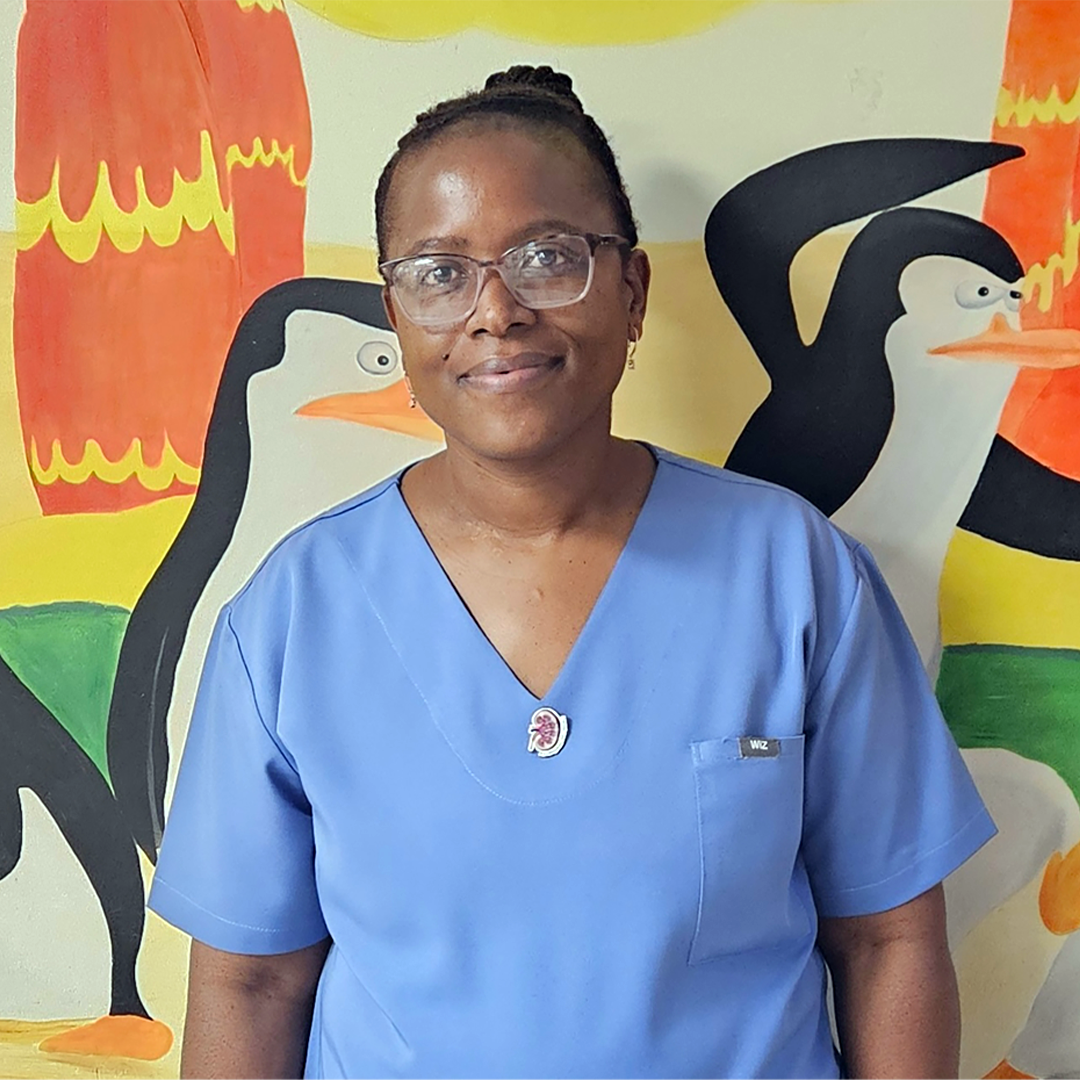Urgent call to improve children’s kidney health in South Africa
Highlighting the critical resource shortage and the need for greater awareness
Dr Patience Sigwadi, a leading paediatric nephrologist practising at Netcare Unitas Hospital in Centurion, has issued an urgent call for increased focus on skills development to address the escalating kidney disease crisis among children in South Africa.
“Despite the rising burden of chronic kidney disease in developing countries like South Africa, our current strategies to address this critical issue fall short,” she warns.
Chronic kidney disease (CKD) impacts between 11% and 13% of the global population, and in South Africa, the challenges in paediatric kidney care are particularly daunting. The healthcare system is stretched thin, with fewer than 30 paediatric nephrologists nationwide. This is especially concerning given that nearly 34% of South Africa's 64.7 million residents are children under 18.
"The shortage of paediatric nephrology professionals, including dedicated nurses who understand the nuances of this field of medicine, highlights a critical gap in our healthcare system. This situation demands immediate action to protect the health of our youngest citizens," says Dr Sigwadi.

Dr Patience Sigwadi, a leading paediatric nephrologist practising at Netcare Unitas Hospital in Centurion, has issued an urgent call for increased focus on skills development to address the escalating kidney disease crisis among children in South Africa.
Causes and challenges
Dr Sigwadi and her team run one of few private paediatric nephrology centres in South Africa. They provide dialysis for children from birth to age 13, using a multidisciplinary approach to treat various kidney conditions including congenital abnormalities, acute and chronic diseases, infections, and hypertension.
She notes that in South Africa, kidney disease in children is often linked to congenital kidney anomalies and genetic and acquired factors such as streptococcal throat infections and recurrent bladder infections. “Acute kidney injury, often resulting from untreated diarrhoea, vomiting, and dehydration, is common among children, and early detection and management can reduce the progression to chronic kidney disease. Other systemic diseases like lupus and diabetes can lead to chronic kidney disease. Additionally, the prolonged use of high doses of medications, such as diuretics and NSAIDs, e.g. ibuprofen, can also contribute to kidney injury, explains Dr Sigwadi.
A silent disease
According to Dr Sigwadi, regular check-ups are crucial for children with risk factors for kidney disease to prevent complications like hypertension and proteinuria, which is an excess of protein in the urine, so potential issues can be identified and managed early.
“CKD often lacks symptoms, making early detection vital. It's typically silent until advanced stages, with poor growth, swelling of the body, decreased frequency of urination, and hypertension being common indicators in children. Early detection allows doctors to treat and protect the kidneys by addressing treatable factors. The three main manageable conditions are high blood pressure, urinary tract infections and proteinuria. Kidney disease often presents vague symptoms, complicating early diagnosis.
“Acquired CKD is also a silent disease that may only become symptomatic in its more advanced stages. Symptoms are often nonspecific; for example, infants usually present with feeding-related complaints, rickets, body swelling, blood in urine and poor growth.
“In infants with congenital anomalies of the kidney and urinary tract, the disease may be discovered through routine antenatal ultrasound scanning during pregnancy. In older children, the diagnosis may come as a surprise when a pathological condition is discovered incidentally. Regular blood pressure checks for children over the age of two should be standard practice, and screening pregnant women can help identify potential issues early on," advises Dr Sigwadi.
The essential role of nurses
Dr Sigwadi emphasises the critical need for more trained healthcare professionals, especially nurses, to improve the understanding and treatment of paediatric kidney disease and deliver quality ongoing care. "Training nurses who can offer care beyond the ordinary is key to tackling this crisis.”
She underscores the importance of nursing professionals who are skilled and deeply empathetic, viewing their work as a calling rather than just a job. "These nurses must connect with young patients and their families, offering comfort and understanding during difficult times. Empathy and dedication are as vital as medical expertise. We need nurses who can look beyond charts, understand the fears, challenges and hopes of children and parents, and are committed to making a real difference," asserts Dr Sigwadi.
Barriers to treatment
“Families face significant challenges in accessing treatment, with some children travelling long distances for dialysis, often without parental support due to economic constraints. Though renal transplantation is available in major centres, cultural customs and a lack of public education on organ donation limit the availability of organs, which makes it essential to create awareness to encourage donor registration.
“Since 2017, only 19 paediatric kidney transplants have been performed in Pretoria, a number hindered by the COVID-19 pandemic. Public education on organ donation could significantly enhance outcomes for children with severe kidney conditions,” notes Dr Sigwadi.
A call for change
Dr Sigwadi's call to action highlights the need for comprehensive care and collaboration among medical professionals, with a particular emphasis on nurses' nurturing role. "By enhancing early detection, resource allocation, and public awareness, we aim to improve the quality of life and health outcomes for affected children across South Africa.
As South Africa grapples with these challenges, Dr Sigwadi's message is clear: “The time for action is now to ensure a healthier future for the nation's children. Cultivating a new generation of nurses committed to empathetic care can pave the way for a brighter tomorrow," she concludes.













